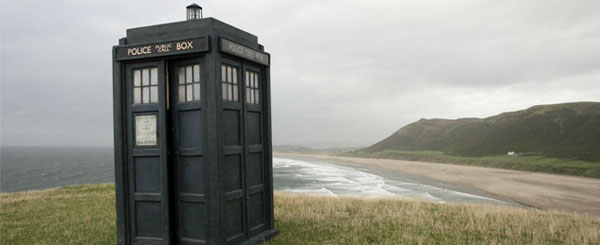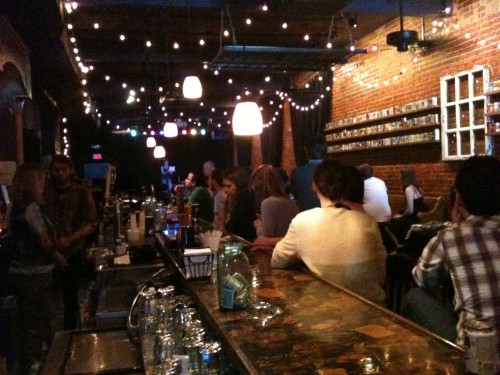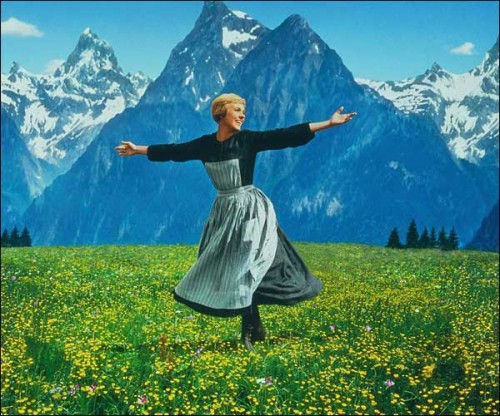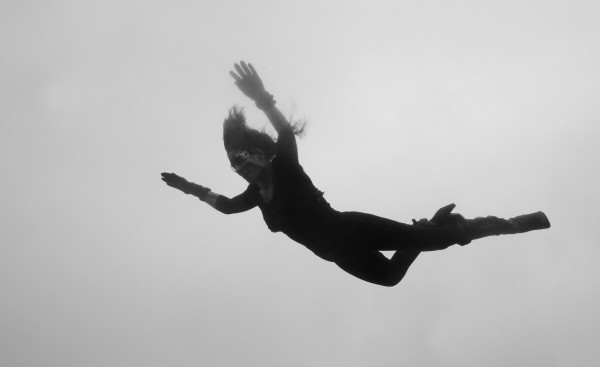Another Kind of Reading List
I always enjoy the reading lists posted here because I like to see what other people read but I rarely see a lot of the books I like to read. Half the time I haven’t heard of most of the books people are talking about. I am finally done unpacking my new apartment, seven months after the move, and I looked at my bookshelves and thought I would make a list of some of my favorite books, the ones I like to read over and over, the ones I read to relax and think and day dream. Some are “literary,” and some are “mass market,” but I don’t really think about books in those terms. I like good stories and these books all tell damn good stories. What are some of the books you love but rarely find on other people’s reading lists?
Drop it like it’s shottttttttttttttttttttttttttttttttttttttttttttttt

People like to be entertained. They like to have something happen in front of them that makes them feel like they were there, saw something, can remember it thereafter. It’s a function of the fact that most of the time spent on the air occurs without definitive sequence or direction, at least not one that appears until the thing is over. This appearance of the sequence after the sequence has been completed is true of human lives, regardless of how directionless they may seem while they are going on, but it is also true of something like a table: a thing that does not move, exerts no proper influence. The story of any table, in its not moving, likely has more motion to it than a lot of things that traditionally exert arcs, such as a sitcom or a ballgame.
It is impossible for nothing to happen, really. The sentence “Orb fell through water.” exerts no definitive narrative product, but does show motion, and contains numerous hidden elements, i.e.: what is the orb? why did it fall? Many would expect then the orb to have a reason for falling, a product of its hitting the water, a cause and effect. But what if the orb is never mentioned again? Does this mean nothing happened? Could the appearance of the orb and subsequent lack of resolution thereby inscribe in the motion of whatever came after it, say “Days slurred numbers in a holy walk.” Is the orb in the days, slurring the numbers; why? Does the orb’s minor appearance lose its motion in not returning, the way a dog might pass your window? Obviously I think no, and some would argue that even if it doesn’t lose its motion fully it could have more presence by returning, but which is more masturbatory? Masturbation, often an ideological anathema to narrative wanting, seems defined by its repetition, by its return again and again to a familiar stroke, with a final climax that has no question. Sex, the stuff of most here’s-how-we-keep-you-interested,-by-having-all-the-characters-fuck-all-the-other-characters-and-or-die-one-by-one-style media, holds the relic of passing time, in the name of pleasure, such that at the end of it there is a thing on the floor and a happy body and a readiness to go to sleep.
I won’t say anything directly about America here, about how we are encouraged to go to sleep, because one of the functions of America is to make that argument sound like a supposed stroke in the supposed massive aesthetic jack off of “resolutionless art” that is actually perpetrated in the meat and bones of everything that has put us politically and culturally, on a majority scale, in the joke box of history.
Using Biographies

In Peter Bien’s introduction to his biography of Nikos Kazantzakis — Kazantzakis: Politics of the Spirit, Volume 1 — he quotes (apologies: this gets meta pretty fast) Stanley Hoffmann’s review of Annie Cohen-Solal’s Sartre: A Life, in which Hoffman says there are at least four ways to write biographies:
“especially those of writers as monstrously prolific as Sartre. One way is to try to deal both with the events in their private and public lives and with their writings. In the case of Sartre, this would require several volumes and an author who would feel competent to handle philosophy, epistemology, novels, plays, screenplays, politics, literary and art criticism and psychoanalysis . . .”
“Another possibility . . . is to try to find in the works the expression . . . of the writer’s personal traumas and conflicts.” A third possibility is to discuss the works at least briefly and to show “their connection with the author’s and the general public’s concerns of the moment, without providing an extensive analysis of the content or indulging in psychological reductionism.” Lastly, one can leave the work aside and concentrate on the life. “It is, of course, a debatable choice. What is Sartre without his books?” READ MORE >
Real Talk (The Lighter Side)

via Consumerist via Matt Bell’s FB wall
big-ass crunky green tomato reading notes
Done went 50+ poets in three days Alabama, something. Reading (s) questions/notes:
1. What to do with hands?
1. How long do you think about what you are going to wear?
2. Introductions longer than poems.
44. Risky: reading in southern accent because you are in The South.
11. Poetry readings in bars make the bartenders almost mime-like, hushed ordering, pouring of drinks, a reverent tinkling of glass, silent smiles. Quite lovely.
 [Brandi Wells reading at The Green Bar. The can of beer in right corner low is Abe Smith‘s beer. It is a Good People IPA.]
[Brandi Wells reading at The Green Bar. The can of beer in right corner low is Abe Smith‘s beer. It is a Good People IPA.]
3. POETRY (profound, hushed voice…book in hand) versus “Uh, these are some poems.” (crinkly paper in hand)
3. Read first or read last or read middle or refuse to read?
3. Inside jokes to friends during reading to larger audience as never effective?
3. Flask/no flask?
3. Revelation: I am beginning to prefer undergraduate or other poets who have not read live very often.
3. I honestly thank/congrat one poet and he blows me off. He ‘cut’ me as Hemingway used to say. A poet. It costs him one book sale and some bad word of mouth later at a beer trough. So what? Respect or hater? A tad of both, I suppose. I still dig his poetry.
4. Do you prefer podium or some physical thing to psychologically shield you from audience?
6. Moon, muses, gossamer. Three words possibly enfeebled/faded, or possibly a challenge to prove otherwise?
4. Best intro line I heard since it could be innocuous or an absolute rip-shot across bow or simply authentic or really smart-ass: “Hey ya’ll, I’m not really a poet. I wish I was, I’d be real smart.”
3. Eagerness is interesting.
Where to Begin?
One writer I know said a story begins on the day something different happened. Another said the story begins where the trouble particular to the point of view starts. Another said give away everything at the beginning, the way John Irving does. Another said start with the strongest possible bit of language or the strongest sentence. Another said start in the middle. Another said start with something mysterious and compelling. Another said start with some nonsense to make the promise you’ll keep. Another said start ambiguously. Another said start unambiguously. Another said start at the end. Another said start at the beginning. My uncle committed suicide, and I wanted to write an essay about it, but I couldn’t figure out where to start, so instead of writing about my uncle’s death, I wrote about “The Question of Where We Begin.” There was no satisfactory answer to the question of where we begin. Every time the question gets asked, it raises a hundred new questions. Where did the trouble begin? If you believe, as some stories do, in a cause-and-effect chain, can’t it be traced back to the beginning of everything? What then? Isn’t this the argument they’re having in school board meetings in Kansas and Texas? And isn’t it true that by dint of deciding where you begin, you’re already giving the lie at the center of “nonfiction”? Because nothing is untouched by subjectivity, and no story doesn’t betray something about its maker?
I’m intrigued, then, by the strategies employed by an old mass market writer named James Michener, who didn’t write books about Bob or Jane or Dick or Tiger or Terry or T.J. or Tylene. He wrote novels about Texas or Poland or South Africa or Space. And with subjects so large — subjects usually tackled by historians or political philosophers geologists or geographers or journalists, rather than by novelists — wouldn’t he have to come up with a strategy that made a rather different kind of promise than “Friday morning, Evelyn woke up to find her husband dead”?
Here is the opening to Michener’s novel Hawaii:
Millions upon millions of years ago, when the continents were already formed and the principal features of the earth had been decided, there existed, then as now, one aspect of the world that dwarfed all others. READ MORE >
What is Experimental Literature? {Recap: Five Questions Vol. 1}
In case you missed any of them, below you’ll find links to each of the 10 writers who participated in the first edition of my series of interviews aimed at expanding our understanding of experimental literature. We generated a heap of conversation and interest, not only here but all over the web: from Ron Silliman to The New Yorker and elsewhere. Due to the overwhelmingly positive feedback from this series, I have decided to keep it going. I’m currently in the process of creating the questions for the second round of the series, which I’ve decided to formulate by using the answers given by the writers from the first series. This way, hopefully, it’ll feel like an ongoing conversation. You can expect the next edition to appear in the month of May, and to include ten new writers of experimental literature. My thanks to everybody for participating. This has been a really great experience. I’m looking forward to presenting the next edition!
Depression and the Kinesthetic Theory of Writing
Sometimes the holy writing spirit possesses you.
There’s no summoning it. I’m beginning to understand that now.
Not like that. Not like: SIT DOWN TO WRITE AND BE INSTANTLY INSPIRED.
There are conditions
There are kinesthetic conditions
There’s running downhill in the park as the rain approaches and the top of your head flies off like a hat getting blown away by a gust of wind.
There is inside the sensation of bodies touching bodies that move toward each other bodies that approach trembling but without fear.
There’s the orange light in the rain-paved streets and the stranger under the bridge.
Hello stranger I am lost.
These are things I cannot generate my own, alone in a room.
There are kinesthetic conditions
Sore muscle conditions
And the understanding that the more I move,
The more I will be able to access the world.
What is Experimental Literature? {Five Questions: Lidia Yuknavitch}

Lidia Yuknavitch, author of the memoir The Chronology of Water, officially released TODAY! from Hawthorne Books. Order from Amazon.com, Powell’s City of Books, or join the Rumpus book club.


